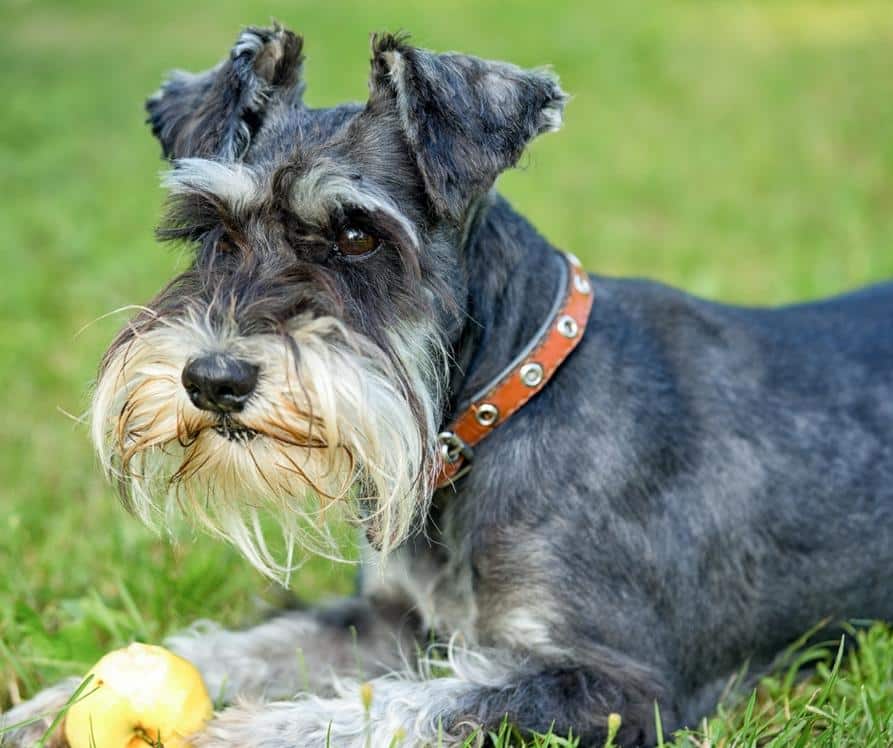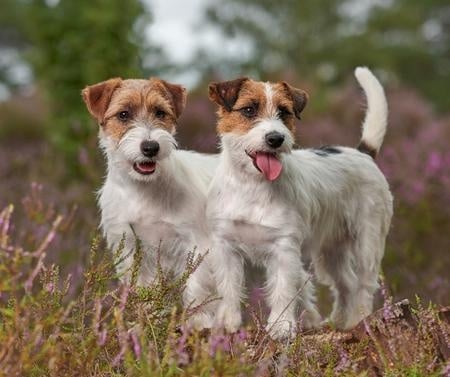
Miniature Schnauzers: A Look into Their History, Traits, and Training Tips
Miniature Schnauzers: A Look into Their History, Traits, and Training Tips
The Origins of Miniature Schnauzers: Tracing Their History
The Miniature Schnauzer is a small and sturdy breed that originated in Germany in the late 19th century. They were developed by crossing the Standard Schnauzer with smaller breeds such as the Affenpinscher and the Poodle. The goal was to create a smaller version of the Standard Schnauzer that could be used for ratting and guarding farms.
The breed quickly gained popularity due to their intelligence, loyalty, and versatility. They were not only excellent ratters but also made great family pets. The Miniature Schnauzer was officially recognized by the American Kennel Club (AKC) in 1926 and has since become one of the most popular breeds in the United States.
Miniature Schnauzers: A Unique Breed with Distinctive Traits
One of the most distinctive traits of the Miniature Schnauzer is their wiry double coat. Their outer coat is hard and wiry, while their undercoat is soft and dense. This unique coat requires regular grooming to prevent matting and to maintain their signature look. Miniature Schnauzers also have bushy eyebrows and a beard, which adds to their charming appearance.
In terms of size, Miniature Schnauzers typically stand between 12 to 14 inches tall at the shoulder and weigh between 11 to 20 pounds. They have a square-shaped body and a strong, muscular build. Despite their small size, they are known for their fearless and confident nature.
Understanding the Temperament of Miniature Schnauzers: What Makes Them Special?
Miniature Schnauzers are known for their friendly and outgoing temperament. They are highly intelligent and eager to please, which makes them relatively easy to train. They are also known for their loyalty and devotion to their families. Miniature Schnauzers are excellent watchdogs and will alert their owners to any potential danger.
However, it is important to note that Miniature Schnauzers can be prone to separation anxiety if left alone for long periods of time. They thrive on human companionship and need plenty of social interaction and mental stimulation to prevent boredom and destructive behavior.
Miniature Schnauzers as Family Pets: Their Compatibility and Adaptability
Miniature Schnauzers make excellent family pets and are well-suited for both individuals and families. They are generally good with children and can adapt well to different living situations, including apartments and houses with yards. However, it is important to note that they may not tolerate rough handling from young children, so supervision is necessary.
They are also known to get along well with other pets, although early socialization is important to ensure positive interactions. Miniature Schnauzers have a strong prey drive, so caution should be exercised when introducing them to smaller animals such as cats or rabbits.
The Physical Characteristics of Miniature Schnauzers: Size, Coat, and Color Variations
As mentioned earlier, Miniature Schnauzers are small dogs that typically stand between 12 to 14 inches tall and weigh between 11 to 20 pounds. They have a square-shaped body with a strong, muscular build.
Their coat is one of their most distinctive features. It is double-layered, with a wiry outer coat and a soft undercoat. The coat comes in various colors, including salt and pepper, black and silver, and solid black. The salt and pepper coloration is the most common and is characterized by a mix of black and white hairs.
Grooming Miniature Schnauzers: Tips for Maintaining Their Signature Look
Grooming is an essential part of owning a Miniature Schnauzer. Their wiry coat requires regular brushing to prevent matting and tangling. Many owners choose to have their Miniature Schnauzers professionally groomed every 6 to 8 weeks to maintain their signature look.
In addition to brushing, their coat also needs to be hand-stripped or clipped to maintain its texture. Hand-stripping involves plucking out the dead hairs by hand, while clipping involves using electric clippers to trim the coat. Regular ear cleaning, teeth brushing, and nail trimming are also important parts of their grooming routine.
Miniature Schnauzers and Their Health: Common Issues and Care Guidelines
Like all dog breeds, Miniature Schnauzers are prone to certain health issues. One of the most common health problems in Miniature Schnauzers is pancreatitis, which is an inflammation of the pancreas. This condition can be triggered by a high-fat diet, so it is important to feed them a balanced and nutritious diet.
They are also prone to developing bladder stones, which can cause urinary tract infections. Regular veterinary check-ups and a proper diet can help prevent these issues. Additionally, Miniature Schnauzers may be prone to certain genetic conditions such as progressive retinal atrophy (PRA) and von Willebrand’s disease, a bleeding disorder.
Training Miniature Schnauzers: Effective Techniques for a Well-Behaved Companion
Miniature Schnauzers are highly intelligent and eager to please, which makes them relatively easy to train. Positive reinforcement techniques, such as rewards-based training and clicker training, work best with this breed. They respond well to praise, treats, and play as rewards for good behavior.
Consistency and patience are key when training a Miniature Schnauzer. They thrive on routine and structure, so establishing clear rules and boundaries from an early age is important. Early socialization is also crucial to ensure that they grow up to be well-rounded and confident dogs.
Socializing Miniature Schnauzers: Building Positive Interactions with Other Pets and People
Socialization is an important aspect of raising a Miniature Schnauzer. Early and ongoing socialization helps them develop good manners and positive interactions with other pets and people. Exposing them to different environments, sounds, sights, and smells from a young age will help them become well-adjusted and confident dogs.
Introducing them to other dogs and animals in a controlled and positive manner is also important. Puppy classes and obedience training can provide opportunities for socialization and help build their confidence.
Miniature Schnauzers as Working Dogs: Their History in Various Roles
While Miniature Schnauzers are primarily kept as companion animals today, they have a rich history as working dogs. Their original purpose was to hunt and kill rats on farms, and they were highly valued for their ratting abilities. They were also used as guard dogs due to their alertness and protective nature.
In addition to their ratting and guarding roles, Miniature Schnauzers have also been trained as therapy dogs, search and rescue dogs, and even as circus performers. Their intelligence, trainability, and versatility make them well-suited for a variety of working roles.
Miniature Schnauzers and Exercise: Meeting Their Energy Needs for a Happy and Healthy Life
Despite their small size, Miniature Schnauzers are an active breed that requires regular exercise to keep them happy and healthy. They have moderate energy levels and enjoy daily walks, playtime, and mental stimulation. They also excel in dog sports such as agility and obedience.
It is important to note that Miniature Schnauzers can be prone to weight gain if not given enough exercise. Obesity can lead to various health issues, so it is important to provide them with regular exercise and a balanced diet to maintain their weight.
Miniature Schnauzers: Finding the Perfect Companion for Your Lifestyle
In conclusion, Miniature Schnauzers are a unique and versatile breed with a rich history and distinctive traits. They are intelligent, loyal, and adaptable, making them excellent family pets. With proper training, socialization, and care, Miniature Schnauzers can bring joy and companionship to their owners for many years to come. Whether you live in an apartment or a house with a yard, the Miniature Schnauzer can be the perfect companion for your lifestyle.

